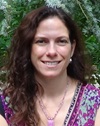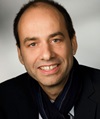 |
Dr. Pruden’s primary expertise is on tracking pathogens and antibiotic resistance genes through environmental systems and developing engineering control strategies for protecting public health. Her broad research mission is to advance the sustainability and health of our water systems through fundamental understanding of microbial ecology.
In 2012-2014 served as the lead PI on an expert workshop focused on the state of the science of opportunistic pathogens in building plumbing supported by the Water Research Foundation, which now serves as fundamental reference to water professionals. Dr. Pruden has served as PI or Co-PI on National Science Foundation, Water Research Foundation, Water Environment Research Foundation, Department of Energy, and U.S. Environmental Protection Agency -sponsored research projects totaling over 8 million dollars.
Currently she is PI on an Alfred P. Sloan Foundation grant entitled, “Effect of Pipe Material, Water Chemistry, and Flow on the Building Plumbing Microbiome.” Her work has been featured in Scientific American, Discover, Science News, Nature News, The New York Times, National Public Radio, and The Huffington Post. She is the recipient of the Paul L. Busch Award (2014) and the Presidential Early Career Award in Science and Engineering (2007).
|
 |
Full professor, Head of the Department of Microbial Ecology (now Department of Microbiology and Ecosystem Science), Faculty of Life Sciences, University of Vienna. Since 2010 Head of the Large Instrument Facility of Advanced Isotope Research, University of Vienna. From 2015 Head of the Research Network “Chemistry meets Microbiology”, University of Vienna.
Since 1997 Wagner has raised 30 third party fund projects from Germany, Austria, Denmark, the US and the EU as PI and Co-PI. He received an ERC Advanced Grant 2011. In total the research of his group was supported by more than 9,1 M€.
Wagner has published between 1992-2015 in his five major research fields (nitrification, single cell tools, wastewater microbiology, endosymbionts, sulfate reduction) 208 papers and more than 30 book chapters.
|
 |
Xianghua WEN is a Professor in school of Environment at Tsinghua University, Beijing, Peoples’ Republic of China. She received her Ph.D degree in Environmental Engineering from Tsinghua University in 1991.
She teaches Modern Environmental Biotechnology and Advanced Wastewater Treatment for graduate students. She carries out the research works in the State Key Joint Laboratory of Environmental Simulation and Pollution Control.
Her major research fields are in Water pollution control theory and technology and Environmental biotechnology.
Examples of her research projects are “Structure and function of the microbial community in wastewater treatment systems as revealed by 454 pyrosequencing and GeoChip high-throughput sequencing technologies” and “Characteristics of ammonia archaea in wastewater treatment systems” supported by the National Natural Science Foundation; “Antibiotic genes distribution pattern in wastewater treatment plant and its relationship with health risk”, supported by the State key joint laboratory of environmental simulation and pollution control; “Risk control in wastewater Reuse”, supported by Chinese Ministry of Science and Technology; “Renovated wastewater treatment model and technology”, supported by Tsinghua university renovation project; etc. She is the author or co-author of 196 technical journal papers and 4 books.
|